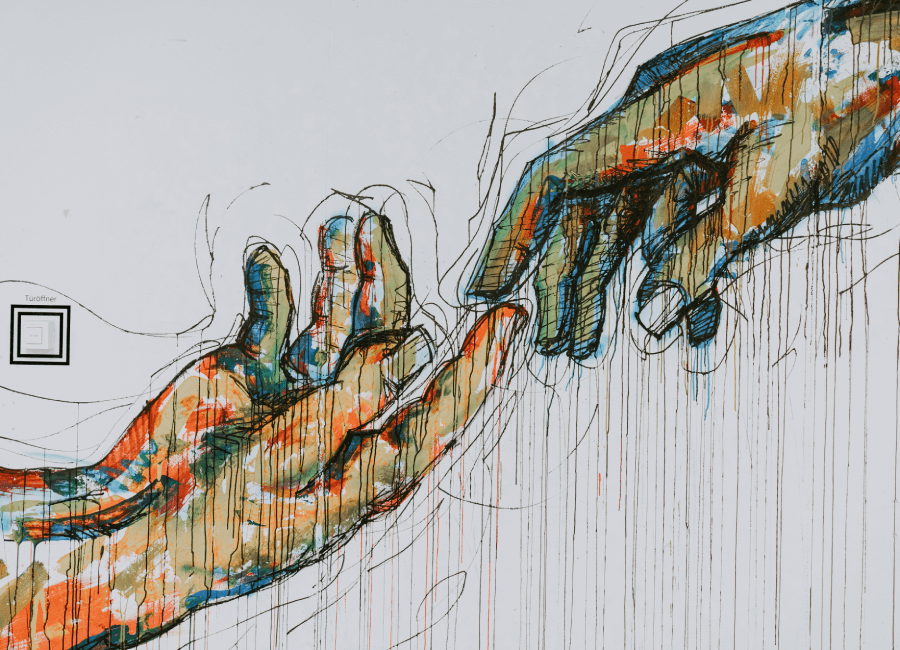I have to confess I’ve recently found myself getting to that age where I sometimes think to myself ‘ooh young people today, with their bubble tea in a jam jar and 'Tik Toking’. Especially when you realise that Millennials aren’t even the youngsters now and it’s all about Gen-Z… This, I suspect is how Market Research must feel about User Experience research, its younger, cooler, freer associate.
Market Research: The Super Tanker
Market research was traditionally about commissioned projects, planning, scale, analysis and reporting. You could see a project coming over the horizon a few weeks ahead, there would be a design phase, a recruitment phase, you’d carry out the actual research (getting lost somewhere on the outskirts of Manchester trying to find a focus group facility or programming a 100-question survey that you’d later regret), drill through a huge wodge of data and then produce a PowerPoint presentation to present to your client or stakeholders in 2 months’ time. You’d have to hope you’d nailed the approach up front, as turning it round was like trying to manoeuvre a super tanker (and we all now know how hard that is!).
| Tweet This | |
| Despite the differences between the two practices, market research has a lot to learn from user experience research and principles. |
However, your course would be well-plotted and your destination is clear, with an inventory of what you would deliver and how - which may be missed at the ground level view that User Experience research takes, and a balanced cargo of representative voices of a multitude of respondents across segments.
User Experience Research: The SUP
In comparison, User Experience research is more akin to stand-up paddle boarding - hip, cheaper, agile, freeing, easily-portable but probably a little bit scarier. Further, whilst market research traditionally has focussed on feedback from a wide base of respondents, User Experience research is more concerned with individuals and with examining how they interact with products and services in order to tailor and improve the user’s experience.
User Experience research is more likely to be quick turnaround, smaller in scale in terms of the research objectives, and iterative, in that the insight gained in one phase of research can provide a change of tack to be followed up in follow on encounters. User Experience research seeks to get amongst users at their level by using ‘watch and learn’ approaches of ethnography and analytics of real time behaviour. What you don’t get from User Experience research to the same degree is the strategic ‘view from the bridge’ of where you’re going and what lies ahead.
Turning the Tide
The tides have started to turn over the last few years, however, and the biggest of the research projects are dwindling away in a dry dock somewhere, making way for something a bit lighter and more agile. In a previous blog post for FlexMR, I outlined what market research can learn from UX design, especially design patterns, wireframes and personas. However, UX research practices can also have an impact on market research through the integration of ux practices into research processes.
Research projects are getting shorter and quicker turnaround, with a focus on smaller research questions - a ‘move fast and break things’ approach. Iterative styles of research are becoming more common where findings coming out of the research can be used to generate more research questions which head in a more relevant direction.
Research is more ‘up close and personal’, enabling stakeholders to see things from the customer’s point of view, through more qualitative, particularly ethnography-inspired methodologies.
| Tweet This | |
| The user experience of market research is incredibly important, and UX practices can help us build the best platform, tools, and processes that generate quality insights. |
Refitting the Ship
However, it’s not only User Experience research practices that can have an impact on how we ‘do’ Market Research, we also need to consider the User Experience of Market Research itself. One of the benefits of the community panels that run on the InsightHub is the unprompted discussion that we get. As well as providing feedback on the product /service/brand that the platform is themed around, customers also offer insights into how it feels to be onboard: that is, the user experience of market research itself. This means we can consider the experience of taking part in terms of:
- How are people interacting with the research (and how would they prefer to interact, in an ideal world)?
- Can we be more ‘in the moment’ in getting feedback on products and services (without getting in the way)?
- Can we reduce the time burden on participants, so that we’re not asking them for an hour of their time to take a long survey on a laptop/desktop when a shorter mobile survey would likely be much more palatable and applicable and get feedback in the moment?
Homeward Bound
We can see that Market Research has a lot to learn from User Experience research and User Experience principles - but that it can exist in the same waters (albeit maybe different channels) to UX research to provide us with both a strategic view of markets and an in-depth view of consumer interaction. Now, don’t even get me started on Wild Swimming.


















